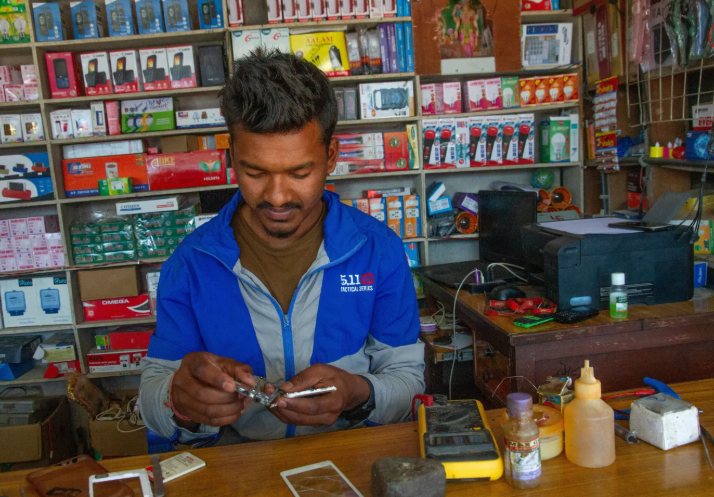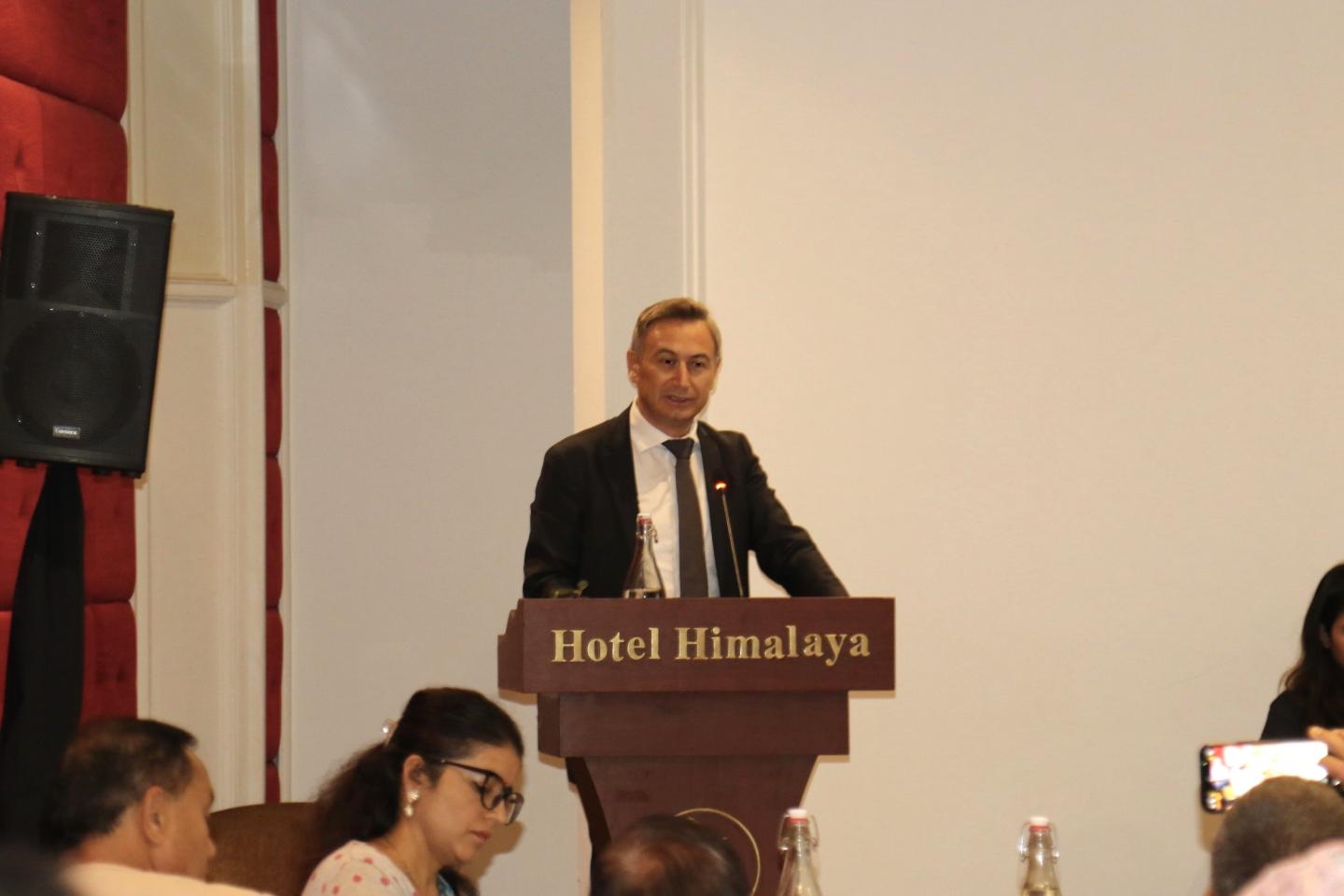As Nepal prepares to graduate from Least Developed Country (LDC) status in 2026, it has committed to the UN Global Accelerator on Jobs and Social Protection for Just Transitions- a bold step toward creating decent jobs and expanding social protection for all.
Kathmandu - Stakeholders from government, trade unions, employers, development partners, and financial institutions gathered to kick off the development of Nepal’s national roadmap under the Global Accelerator, at a high-level national workshop held on 27 June in Kathmandu, Nepal.
The Global Accelerator on Jobs and Social Protection for Just Transitions, launched by the UN Secretary-General, supports countries in aligning employment and social protection policies with climate and development goals. For Nepal, this means tackling persistent challenges such as informality, youth unemployment, gender inequality, and limited access to social protection.

Despite ongoing government efforts, most of Nepal’s workforce remains in low-quality, low-productivity jobs. Nearly 20 million people lack social protection, and women, who shoulder 85 per cent of unpaid care work, remain largely excluded from the formal economy. Meanwhile, climate pressures and demographic shifts are increasing demands on Nepal’s social systems.

“Job creation, on its own, is not enough. To ensure a just transition, we need strong, inclusive, and resilient social protection systems. Today, we are launching a roadmap process that will define Nepal’s pathway towards decent work and social protection for all,” said Numan Özcan, ILO Country Director for Nepal.
The workshop, organized by the National Planning Commission with support from the ILO, UNDP, UNICEF, UN Women, and the World Bank, launched Nepal’s roadmap development process. This roadmap will guide investments and policies under Nepal’s 16th National Development Plan and its LDC graduation strategy, with a focus on the green, digital, and care economies.
"As we move forward, our future will depend not only on the number of jobs we create but also on how fair and inclusive those jobs are. In our National Action Plan, we have identified 20 structural challenges. Other key issues concern social protection and employment. The critical question is how to lay the foundation for GDP growth. So this diagnostic workshop aims to define how to align our overall objectives with effective job creation. Our three national goals in this endeavour are centred on three pillars-governance, social justice, and prosperity,” highlighted Prof Dr Shiva Raj Adhikari, Vice Chairman, National Planning Commission, as the chief guest of the event.
"The National Planning Commission is happy to take the lead in working on job creation and social protection in an integrated manner, in collaboration with all government agencies and development partners," shared Dr Prakash Shrestha, Member, National Planning Commission.
Furthermore, Rajan Poudel, Joint Secretary, National Planning Commission, emphasized, “We need to accelerate our efforts beyond what we have done in the past, particularly in expanding employment opportunities. In Nepal's context, a large share of our economy remains informal, and many of our labour laws are yet to be fully implemented. As we move toward graduation from LDC status, one key benchmark is per capita income. This makes income-generating activities a critical pillar of our development pathway."
Backed by funding from the UN Joint SDG Fund and the World Bank Social Protection Resilience Trust Fund, the Global Accelerator provides Nepal a unique opportunity to design integrated, gender-responsive, and climate-smart solutions for decent work and universal social protection.